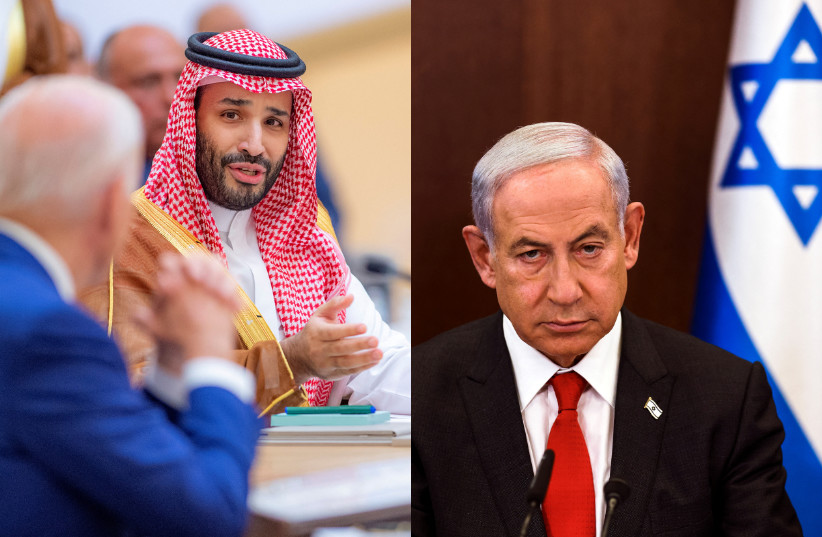Over 500 former high-ranking officials from the IDF, Mossad, Shin Bet (Israel Security Agency), Foreign Ministry and others on Thursday endorsed a call by 20 US Senators for any normalization between Israel and the Saudis to be conditioned on progress with the Palestinians.
The NGO, Commanders for Israel's Security (CIS), said they support "Senators Van Hollen, Murphy, Welch and Majority Whip Durbin, as well the other co-signatories, for their insistence that the Saudi-Israeli normalization process serves to change dynamics on the Israeli-Palestinian track as well."
In a statement, they said that "the possibility of normalizing Saudi-Israel relations holds the promise of contributing to Israel’s security, prosperity and regional integration, as it enhances regional stability and opens the door to further breakthroughs with other Arab and Muslim countries."
'No normalization without changes to West Bank policy'
However, the statement also said, "no normalization and no regional integration is likely to be sustainable and reach its full potency absent major changes in Israel’s West Bank policy and Palestinian Authority’s conduct. As such changes are vital for Israel’s national security, incorporating them into the normalization process serves both objectives."
Next, they said, "continued Israeli annexation and settlement expansion, settler violence, extremists’ provocations at holy sites, all spell more violence en route to an ever-conflicted one-state reality. Concurrently, Palestinian resolve to fight terrorism is essential in stemming the endless cycle of violence, and PA avoidance of futile provocative gestures at international forums could help restore a measure of confidence."

"CIS has long advocated – and presented specific plans for – an Israeli government initiative to reduce friction between the two peoples. Our plan calls for civil separation while maintaining continued overall Israeli security responsibility until a political agreement is reached," said CIS.
Moreover, "Such measures, coupled with steps to strengthen and reform the PA as well as to enhance the role of the USSC in solidifying anti-terror security coordination between the Palestinian security agencies and Israel’s, are essential for short term stability and for keeping the door open for an eventual two-state solution."
In that vein, CIS said this sober realization led it to advocate "that those leading the negotiations see to it that measures as suggested in the senators’ letter and those encapsulated in the CIS plan are incorporated into any Israeli-Saudi normalization agreement."
For example, CIS stated that any deal "should insist that Israel commit to refrain from any unilateral - or otherwise irreversible - activity that advances annexation, thereby promote [ing] conditions which could ultimately get negotiations for a permanent solution between Israel and the Palestinians back on track."
The letter by the 20 US senators was sent to US President Joe Biden on Wednesday.
CIS has been advocating a variety of security-detail-heavy initiatives for partial withdrawals and enhanced security cooperation with the Palestinian Authority for several years, though it has been quieter in recent election cycles when domestic issues became more dominant.
